The MuseFlow Blog
Discover:
Curriculum
There are perhaps few things scarier to a musician than focal dystonia. I recently had lunch with a friend who is a professional clarinetist for the San Francisco Ballet, and she mentioned she personally knows about one hundred classically trained musicians who have developed this neurological disorder!
In the sports world this is commonly referred to as the yips, and this disorder affects around 1% of professional musicians across all genres. However, 95% of those cases come from classically trained musicians. Let’s discuss why this happens, and what mitigation efforts you can be put in place so that focal dystonia never presents itself in your performance.

Focal dystonia causes a loss of voluntary motor control in extensively trained movements. The brain develops overlapping neural maps, and musicians can experience cramping, tightness, fatigue, and involuntary muscle contractions. This can make it hard to perform complex instrument movements that musicians have been practicing for years.
Focal dystonia is idiopathic, meaning that “experts can’t point to one factor that causes it.” But some risk factors have been determined. According to Medical Problems of Performing Artists:
- There are higher risks for musicians who play instruments with maximal fine motor skills…like the piano.
- Musicians with anxiety and perfectionist tendencies tend to have higher rates of focal dystonia.
- Genetics is thought to be a contributing factor.
Because there’s a strong association between anxiety and perfectionist tendencies and focal dystonia, we should look at the ways piano teaching and training can either contribute to or alleviate those risk factors.
.jpg)
Extreme Repetition
Many traditional teaching systems can encourage students to repeat certain bars and passages over and over again in order to perfect their technical skills and repertoire. But that can actually be detrimental to your fine motor skills.
Extreme, precise repetition can lead your brain to reorganize its neural connections in a process called cortical remapping. This is understood to be a major risk factor for focal dystonia. Variation is important for keeping your neural maps from overlapping.
Perfectionism
The perfectionism that many musicians are taught can directly lead to major risk factors.
- Too much internal monitoring, or being overly detail-oriented and controlling, can mess with the brain’s necessary automatic motor programs.
- Too much practice of isolating and controlling your fingers can lead to co-contraction and a stiff and overly controlled system. This actually hurts fine motor control.
- A mentality of pushing through the pain for the sake of perfection can teach the body not to warn you when it needs to do so.
- Specializing at a young age in a high-pressure environment can shape your nervous system towards narrow movement constraints.
- Perfectionism contributes to anxiety, and both “may be aggravating factors during the development of musician’s dystonia.”

What Can We Do?
To avoid these potential risk factors, we need musical education that reduces the repetitive, overly controlled, anxiety-inducing perfectionism that is far too prevalent in classical training. We can do this by:
- Teaching with a wide variety of music rather than hyper-repetition.
- Teaching holistic, whole arm music education rather than isolating and micromanaging your fingers.
- Reducing external pressure and listening to your body when it’s in pain or when motor control is degrading.
How MuseFlow Fits In
MuseFlow is a piano education program that encourages Flow State and sight reading through constant music variation. The system offers an alternative to the high-pressure classical training that can be healthier for your nervous system and reduce the risk factors associated with focal dystonia.
- Variety: The focus on sight reading means that you’ll be playing songs on first sight. MuseFlow generates an indefinite amount of music so you’ll always have new-to-you pieces to play. This helps your brain build flexible motor programs and strengthen generalizable coordination.
- Flow State: This is antithetical to overthinking and micromanaging. Encouraging a constant state of creative flow with MuseFlow’s gamified system will help reduce the cognitive motor supervision common with musicians with focal dystonia.
- Clear, Attainable Goals: MuseFlow sets clear, attainable goals through incremental learning and continuous music at your skill level. High-pressure perfectionism is replaced by progress-oriented practice and positive reinforcement to create a more sustainable, low-stress improvement. There’s no incentive to push yourself past your skill level and take on more than your nervous system can handle.
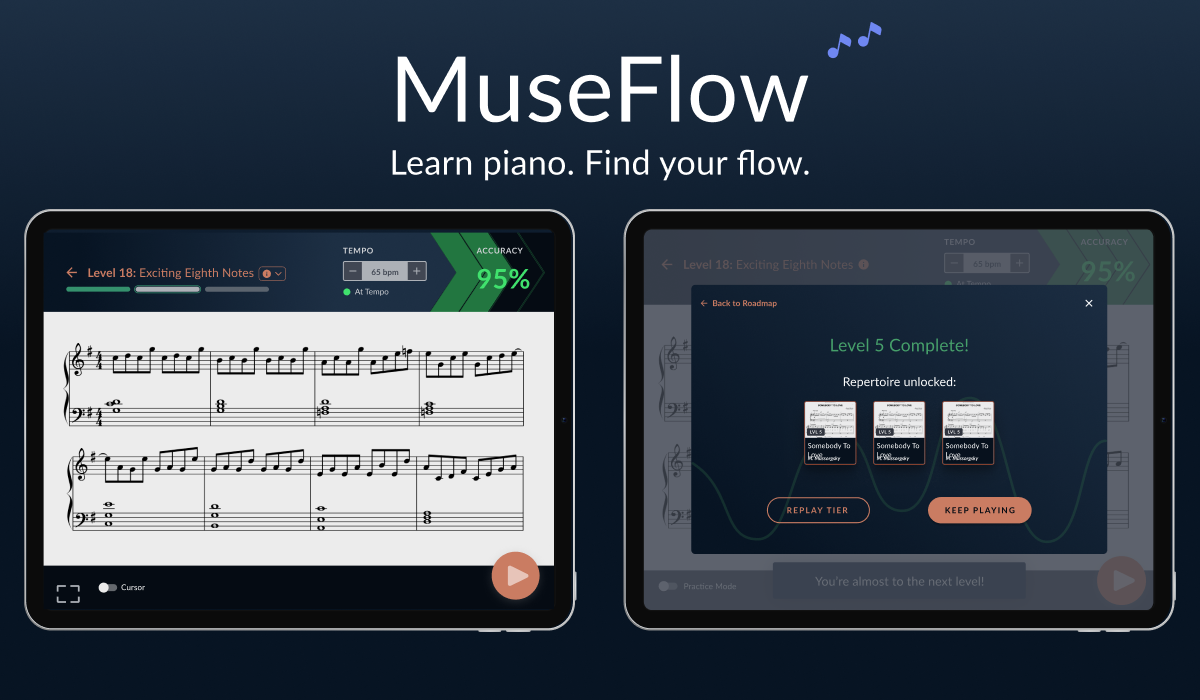
Conclusion
If left unchecked, focal dystonia can threaten to derail musicians’ careers. So it’s worth considering how we can reduce the possible risk factors in our music education.
It’s important to note that specific training methods can’t treat focal dystonia or guarantee you won’t develop it. Some people have genetic predispositions and prior injuries that make them more vulnerable to developing the disorder than others. But by focusing your music education around variation, flow, and positive reinforcement, you can support healthier motor learning principles.
And here’s the cool thing about ditching repetitive perfectionism…it can also make learning the piano a lot more fun.

Piano Grades Vs. Real Musicianship: How MuseFlow Compares to Traditional Systems
For a long time, traditional piano grading systems have been the standard for tracking a pianist’s musical progress. But what exactly do those systems track? And are there perhaps some musical elements that slip through the cracks of these longstanding institutions?
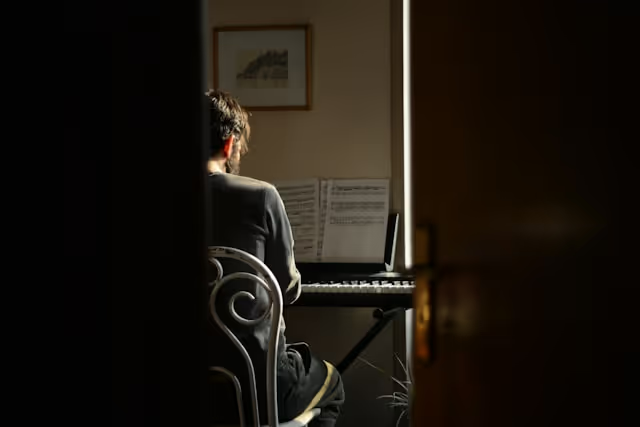
What Traditional Grading Systems Do Well
Many pianists around the world judge their progress through traditional grading systems like ABRSM, TCL, and RCM. We’ve talked about these systems at length in a previous blog post.
The exams are great at giving structure to your piano learning. You can use their concrete goals and milestones for motivation and track your progress through their standardized tests. The grades can even open doors in your music career, as these systems are recognized on an international scale.
When you take a traditional exam, you will likely be asked to play polished and memorized pieces, demonstrate technical skills like scales, arpeggios, studies/études, and test your aural abilities.
With their focus in these areas, exams can be a great way to learn how to:
- Perform rehearsed pieces under pressure
- Improve your technical skills
- Give yourself a structured piano routine
The traditional system rewards memorization and repetition as you polish your repertoire. But it can be found lacking in teaching musicianship.

What is Musicianship?
Musicianship is literally defined as the “knowledge, skill, and artistic sensitivity in performing music.” More specifically, it’s the art of being a musician. It’s the creative decisions you make when playing a piece. It’s the emotion you infuse into the notes. It’s the holistic music comprehension required to be a musician.
Musicianship involves the following:
- The ability to read music quickly and fluently
- A strong sense of rhythm
- The ability to adapt and improvise
- Creativity in your musical expression
- Confidence in yourself as a musician
Exploring and improving your musicianship is the journey of finding and honing your identity as a musician.
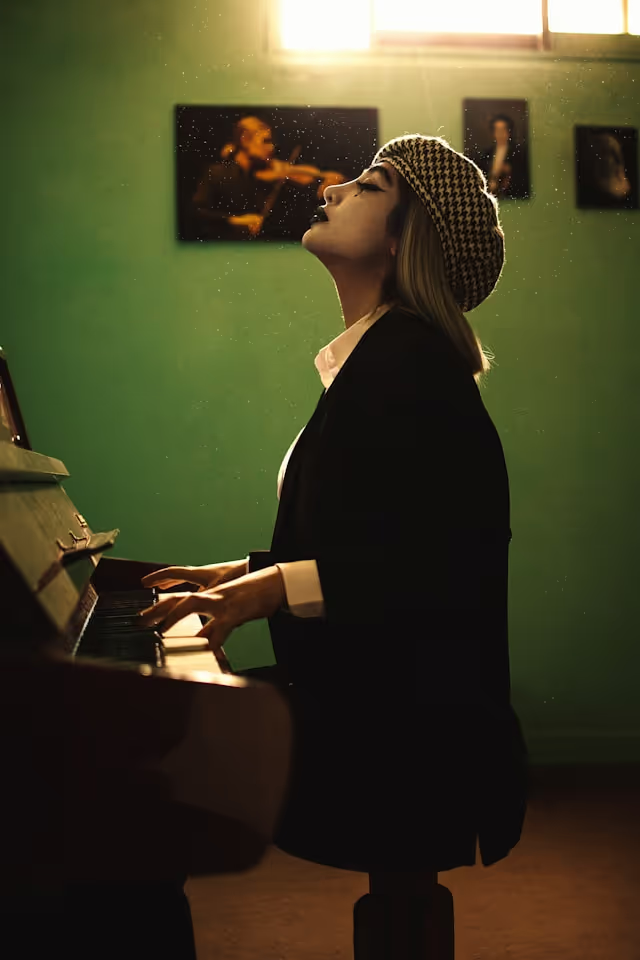
What Traditional Grading Systems Can Miss
One academic publication explains that for musical institutions, “teachers spent much of their time teaching technique and repertoire, which many authors suggest is only one aspect of professional musicianship… The focus ideally should be on ‘producing rounded musicians showing a high level of instrumental competence, a depth of musical understanding and a core of personal confidence that will allow them to express themselves with total commitment in any performing area.’”
As we mentioned in our blog about sight reading learning, sight reading only makes up about 10-15% of traditional exams. But sight reading is crucial to musicianship.
- It helps your ability to read, comprehend, and play music quickly.
- It enhances your holistic musical comprehension
- It raises your musical floor…so you need less practice to perfect a new song in your repertoire.
- It boosts your confidence…if you can play more music sight-unseen, you’ll be more confident when encountering songs and musical styles that are new to you.
The focus on improving just for the sake of grades can also create some learning gaps. The grades reward big milestone performances rather than steady, consistent learning. And the ability to choose music pieces that play to your strengths can lead to avoidance of developing certain skills.
While these exams do test a lot of elements that are important for musicians, it just doesn’t consider everything that’s needed for well-rounded musicianship.
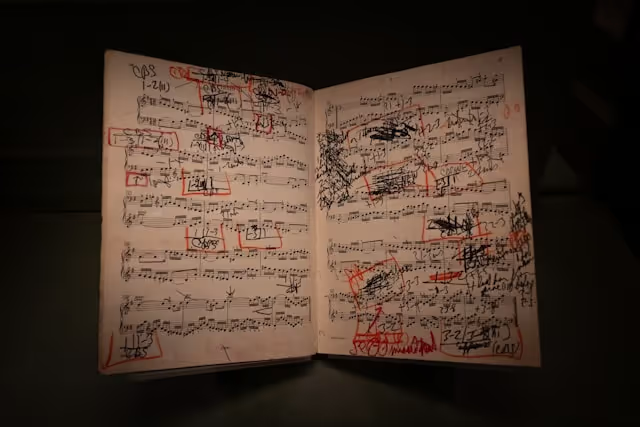
MuseFlow and Musicianship
We here at MuseFlow believe in giving you the tools you need to build your musicianship.
- MuseFlow’s levels offer continuous, incremental learning. The challenge level and ability to change tempo allows the program to always meet you exactly where you are.
- Sight reading is foundational to MuseFlow, raising your musical floor by teaching you to read, comprehend, and perform new music on first sight.
- MuseFlow’s indefinite, algorithm-generated music and instant feedback encourages you to stay locked into Flow State.
- One article explains that Flow State is “key to improving performance” and that studies show that “when musicians are in flow, their brains exhibit heightened activity in areas responsible for creativity and motor coordination while suppressing the prefrontal cortex, which controls self-criticism. This explains why performers in flow feel less anxious and play with more confidence.”
- One article explains that Flow State is “key to improving performance” and that studies show that “when musicians are in flow, their brains exhibit heightened activity in areas responsible for creativity and motor coordination while suppressing the prefrontal cortex, which controls self-criticism. This explains why performers in flow feel less anxious and play with more confidence.”
That focus on sight reading, incremental learning, and Flow State can help you build your musicianship and fill the gaps from traditional exam structures.
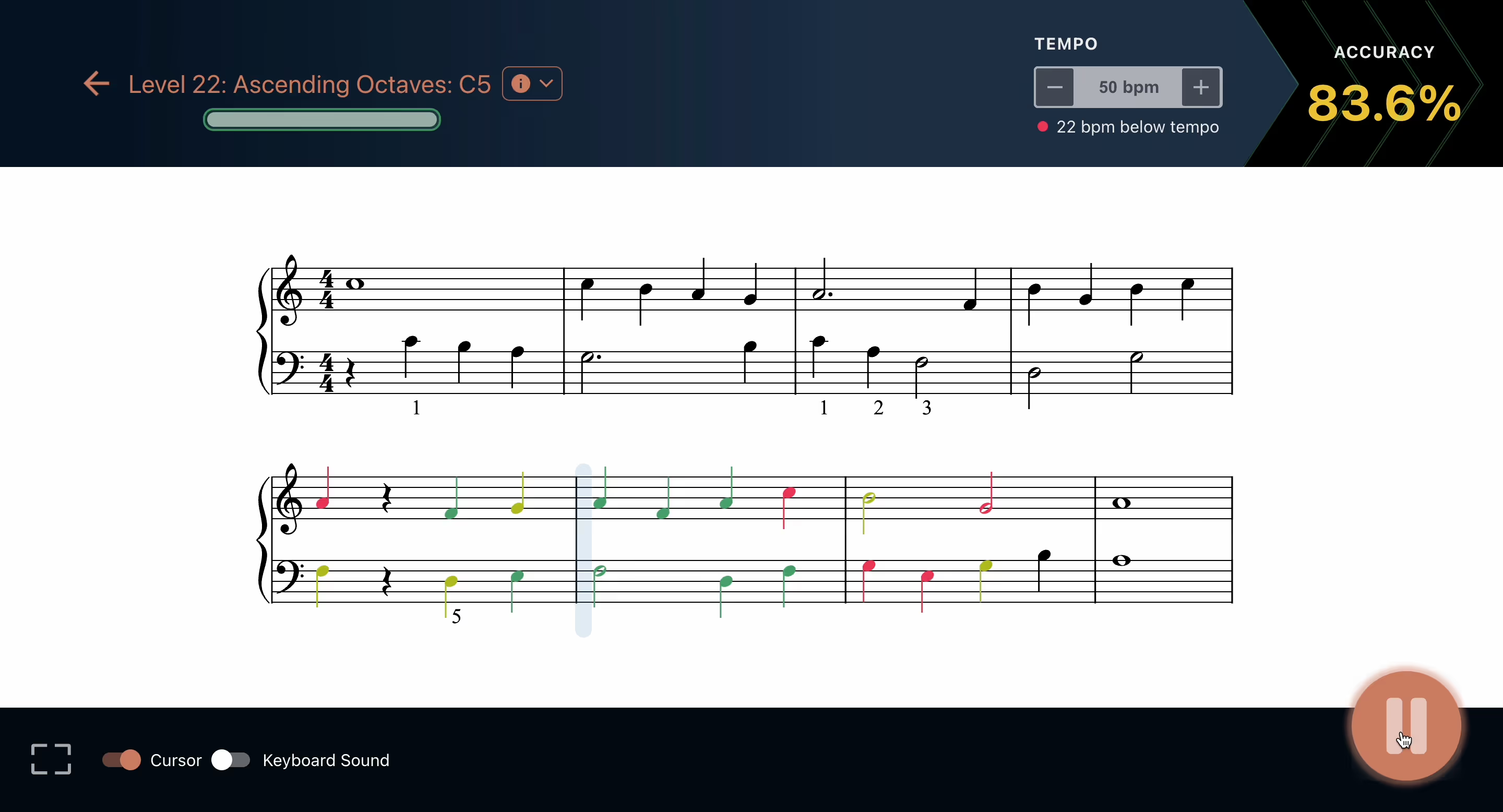
Conclusion
The ways we judge a musician’s skill can dictate the priorities of those musicians as they’re working to improve their craft. So while traditional exams can be really helpful tools, it’s also important that we think about the priorities in how we judge musical success and make sure that it includes a comprehensive view of musicianship.
As you go on your musical learning journey, never forget that you’re an artist!

Why Traditional Sight Reading Learning Methods Don't Work
Sight reading is the ability to play a piece on first sight. It’s a unique skill that requires reading, comprehending, and then translating sheet music in an instant. It involves deciphering rhythm, pitch, time pressure, and coordination…all at the same time.
The benefits of learning this skill are endless. As we talked about in our previous blog, sight reading:
- Is important for accompanists and members of orchestras, bands, and choirs
- Expands your repertoire
- Enhances your musical understanding
- Improves your versatility
- Boosts confidence.
- Raises your musical floor
A study in the International Journal of Music Education found that while sight reading is important, training is “often neglected,” even among advanced pianists.
But why is that? It may be in part because traditional piano learning systems are largely insufficient at helping you develop, track, and practice the skill.
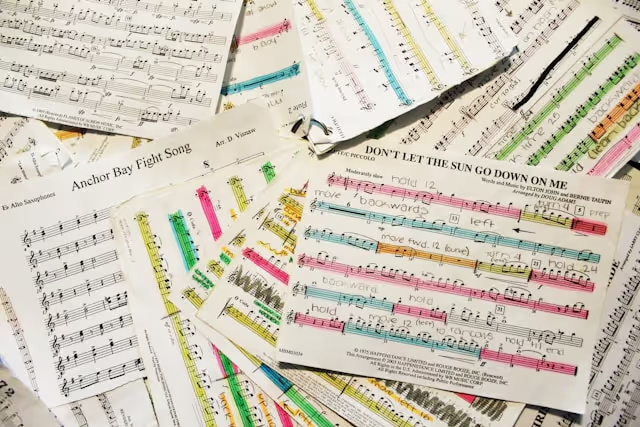
PIANO GRADING SYSTEMS DON’T PRIORITIZE SIGHT READING
We’ve talked in a prior blog post about the different piano grading systems. Music exam boards like ABRSM and RCM offer these systems to help pianists track their progress, set goals, and offer standardized certifications that musicians can use for college and job applications. While these can be very useful, we’ve found that they just don’t prioritize sight reading.
A major component of these grading systems is preparing, polishing, and performing a number of songs. Learning these songs:
- Expands your repertoire
- Helps teach you the technical skills needed to execute those songs
- Rewards repetition and memorization over real-time music reading
In most cases, sight reading is only a small component of the exam. For ABRSM, often seen as the standard for piano grading systems, sight reading makes up about 14% of a typical exam. In fact, across the board, sight reading tends to only occupy about 10-15% of piano grading exams.
But you don’t learn sight reading by polishing your repertoire…you learn it by playing music you’ve never seen before.

EXAMS LACK NUANCE WHEN IT COMES TO SIGHT READING
Within these grading systems, the sight reading component is usually graded on a pass-fail basis. You either succeed at the given level or you don’t. But sight reading is a lot more nuanced than that.
Your sight reading ability exists on a spectrum. You could have advanced skills of reading fluently at tempo but struggle with rhythms. You could move quickly at the keys you know well but freeze at the ones you don’t. It’s a nuanced skill, and your assessments should be similarly nuanced.
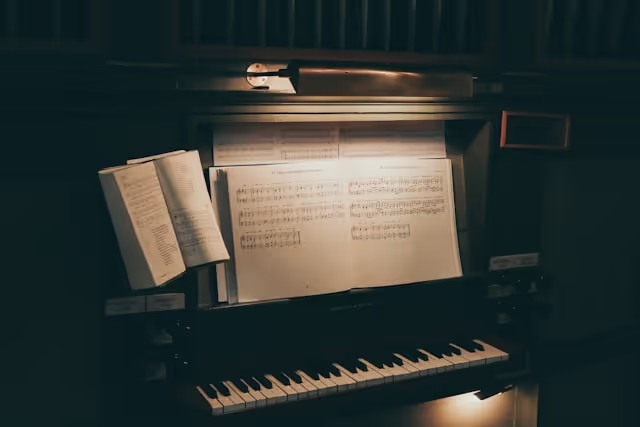
BOOKS JUST AREN’T ENOUGH
Just like every other aspect of playing the piano, learning sight reading requires practice. There are books that offer guidance and sheet music specifically for this. That could give you a good start, but you’ll always run into the same problem: running out of sheet music.
Sight reading involves playing a piece of music on your first exposure to it, so you can only really practice and get better if you have a steady stream of new-to-you songs. Sight reading books are finite resources that you’ll eventually read through and no longer have use for.
So if the traditional infrastructure for sight reading:
- Doesn’t prioritize it
- Lacks nuance
- Doesn’t offer enough material to actually practice
Then how are you supposed to actually learn it?

ENTER MUSEFLOW
This is where MuseFlow comes in. While most other piano learning systems treat sight reading as a secondary skill, MuseFlow treats it as a trainable system that’s foundational for your musical progress.
Compared to the pass-fail aspect of traditional piano exams, MuseFlow offers an adaptive, incremental approach to learning sight reading and tracking your skill level. When you play MuseFlow’s gamified system, the app gives you real-time feedback on the notes you play. So you’re able to see exactly where and how you can improve at any given level.
MuseFlow also introduces one new idea at a time, and you can change the tempo whenever you want less or more of a challenge. The hyper-specific nature of the program ensures that it’s always meeting you at your skill level and helping you along as you get better.
And perhaps most importantly, MuseFlow’s algorithm-based generative sheet music gives you an indefinite amount of songs. That means there’s no need to worry about running out of new-to-you music to practice your sight reading.

CONCLUSION
Sight reading is an essential building block to your musicianship as a pianist. But if learning this skill has ever felt hard for you, that’s totally normal! Traditional learning methods just haven’t been sufficient.
As opposed to traditional systems, MuseFlow:
- Gives a nuanced assessment of your sight reading
- Adapts to your specific skill level
- Offers indefinite music to practice
No matter your age and skill level, you can learn to sight read. All you need are the right tools!

Piano Grading Systems Explained - ABRSM, RCM & More
Millions of people play the piano around the world. That’s millions of people at different skill levels, learning and improving at totally different stages of their piano journeys. That’s why we at MuseFlow are fascinated by trying to create a system for all levels and experiences.
But how do pianists judge their skill level? And do different countries use different methods?
This is where piano grading systems come in. These are exams that test things like song performance, scales, and knowledge of music theory. When you pass one of these exams, you can move on to the next grade and your piano-learning journey continues!
Let’s break down the most popular grading systems around the world and dig into which one might be perfect for you.
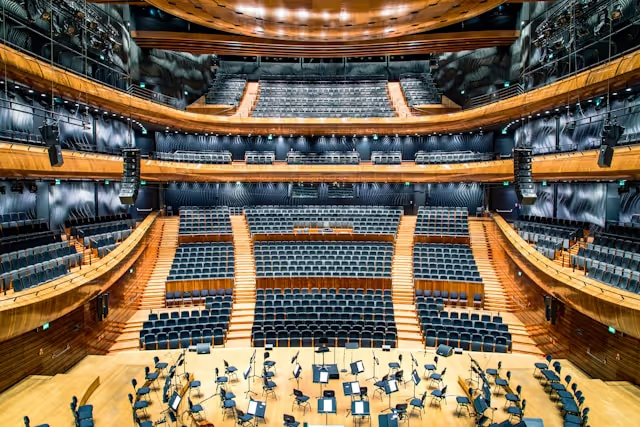
Associated Board of the Royal Schools of Music
The ABRSM is a British music examination board that has been around since 1889. It offers in-person and digital exams and is one of the most commonly used and recognized grading systems worldwide. It is commonly considered a global standard for music education.
The grades start at Initial Grade for beginners, followed by Grades 1-8 of ascending difficulty. There’s no entry requirement for exams for Initial Grade through Grade 5, but exams for Grades 6-8 come with a prerequisite of passing Grade 5 or above in either Music Theory, Practical Musicianship, or Jazz Practical Grade. Beyond Grade 8, ABRSM offers three levels of advanced diplomas: ARSM, LRSM, and FRSM.
The exams focus on comprehensive musical knowledge, skills, and performance. You will be tested on:
- Three performance pieces.
- Scales and arpeggios.
- Sight-reading
- Aural tests.
Because their exams have a strong classical and traditional focus, ABRSM is perfect for students interested in classical piano training. And because ABRSM is the most well-known examination board, the grades you earn from them will be recognized around the world.
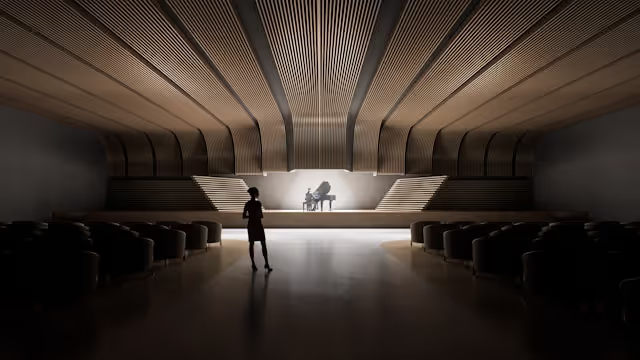
Trinity College London
Trinity College London (was established in 1872 with more than 600,000 candidates per year in over 60 countries worldwide. While not quite as popular globally as ABRSM, Trinity College is still widely recognized and respected.
One of the big differences with ABRSM is that Trinity offers a separate pop and rock exam structure as well as their more classical-focused exam. Their exams also offer more flexibility and assessment options to choose from.
TCL has similar grades to ABRSM, with Initial Grade, Grades 1-8, and advanced diplomas ATCL, LTCL, and FTCL. Their exams are performance-focused and have face-to-face and digital options.
Here, you will tested on:
- Three performance pieces (from traditional to modern/pop pieces)
- Technical work, which could include scales, arpeggios, technical studies/exercises, and orchestral extracts.
- For Initial to Grade 5, you can choose two of the four supporting tests: sight reading, aural, improvisation, and musical knowledge. Starting at Grade 6, sight reading becomes mandatory and you can choose between aural and improvisation.
Because of their pop/rock grade track, Trinity College is perfect for someone with a more modern musical focus and sensibility.
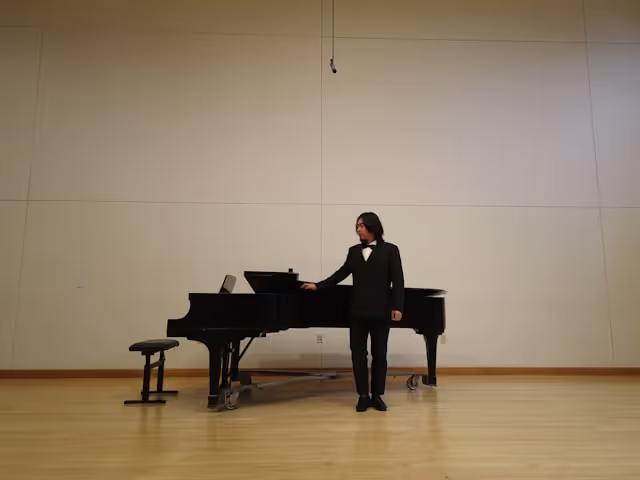
Royal Conservatory of Music
The RCM is a Canadian school based in Toronto and was founded in 1886. Its system is also recognized internationally and is popular in North America, used by 500,000 North American students today.
The RCM system starts with Prep A and Prep B, and then moves on to Grades 1-10. This means that RCM has spread its system into more exams than ABRSM and TCL.
Exams are more focused around classical and jazz, but there is an option to substitute some songs from the pop syllabus as well. From Grades 5-10 you must pass a music theory exam before taking that grade’s performance exam.
In an RCM exam, you will be tested on:
- Three to five pieces of repertoire depending on skill level.
- One or two studies/études.
- Scales, chords, and arpeggios.
- Aural and sight-reading tests.
RCM is a popular option for North American pianists who still want internationally recognized certifications. This is one of the more theory-focused systems, so it’s great for those looking to include more theory in their piano education. With more grades, it’s also good for musicians who want a more incremental approach to their musical education.
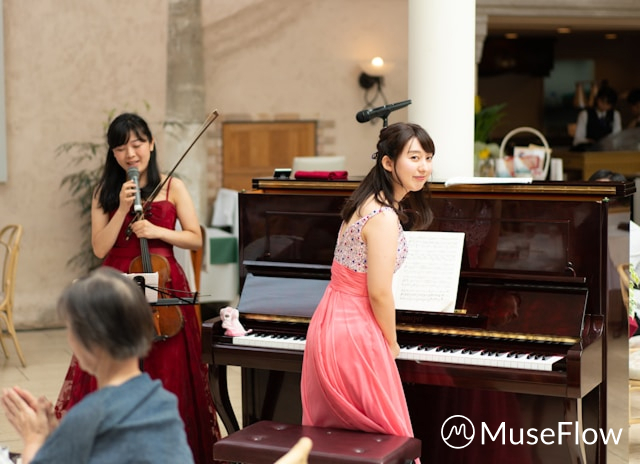
Conclusion
This is far from an exhaustive list of the piano grading systems, but ABRSM, TCL, and RCM are three of the most popular and widely recognized. The systems may come with different styles of exams, but all can help you set standardized goals, track progress, and offer certifications that can be useful for college applications and ensemble auditions. If you’re looking for a way to structure your piano learning progress, these piano grading systems can help you do just that.
Piano Chords for Beginners: The 12 Must-Know Chords to Play Any Song
If you're looking for piano chords for beginners, you've come to the right place. Chords are the building blocks of music, and mastering just 12 essential chords will unlock thousands of songs. With MuseFlow, you can learn these chords in context, not just as isolated finger positions, making your learning faster and more musical.
Let's dive into the must-know piano chords for beginners that will transform you from a note-by-note player into someone who can actually accompany songs.

Why These 12 Chords Matter
Before we list them, let's understand why these specific chords are so powerful. These are the most common chords in Western music, appearing in everything from pop to classical. Once you know them, you'll start recognizing them everywhere. More importantly, these chords form the foundation for understanding music theory, harmony, and improvisation.

The 12 Must-Know Piano Chords
1. C Major (C-E-G)
This is the most fundamental chord. It's all white keys, making it easy to find and play. C Major is the "home" chord in the key of C, and it has a bright, happy sound. You'll find it in countless songs.
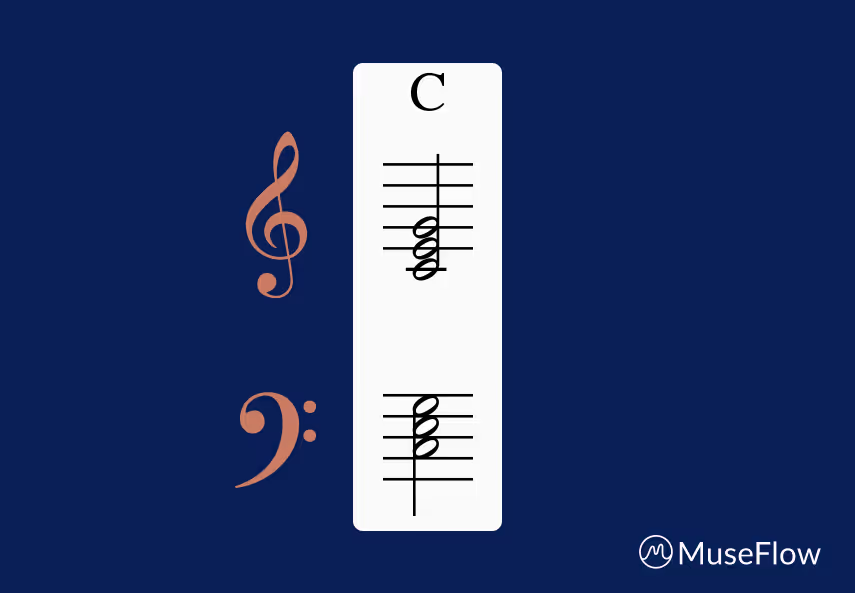
2. G Major (G-B-D)
Another bright, uplifting chord. G Major is often used in conjunction with C Major, creating a sense of movement and resolution. It's essential for playing in the key of C and G.
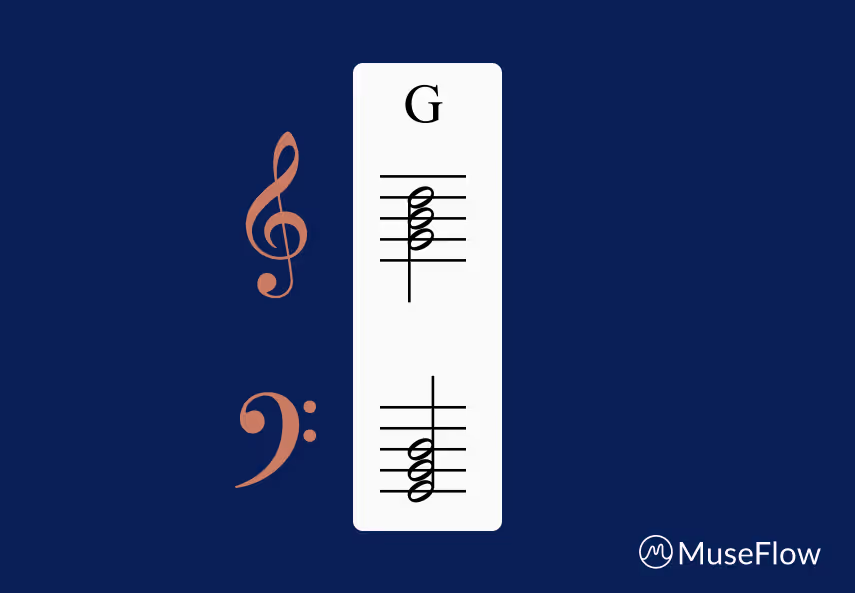
3. D Major (D-F#-A)
D Major introduces your first black key (F#). It has a strong, confident sound and is crucial for playing in the keys of D and G.
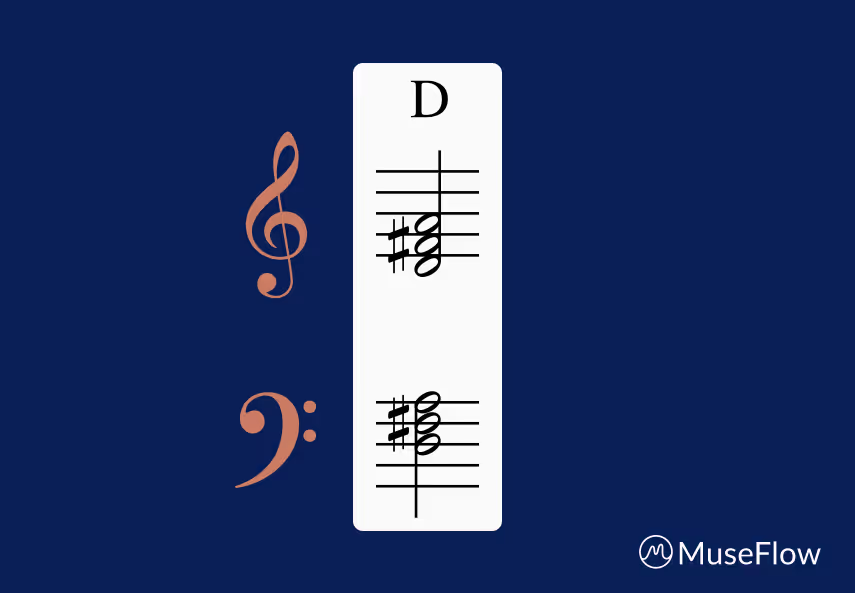
4. A Major (A-C#-E)
A Major is warm and resonant. It's a staple in folk, country, and rock music. Learning this chord helps you understand how sharps work in chord construction.
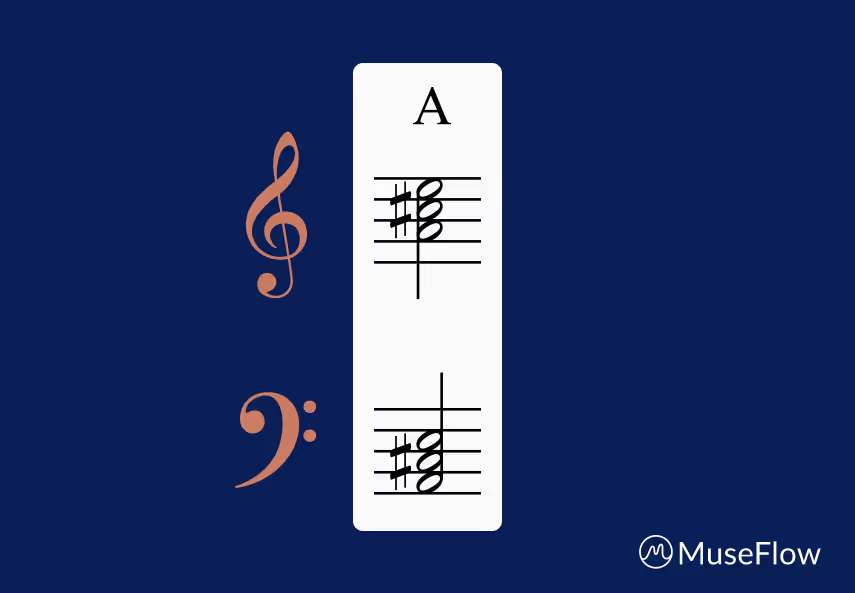
5. E Major (E-G#-B)
E Major is bold and assertive. It's commonly used in blues and rock progressions. This chord is essential for playing in the key of E and A.
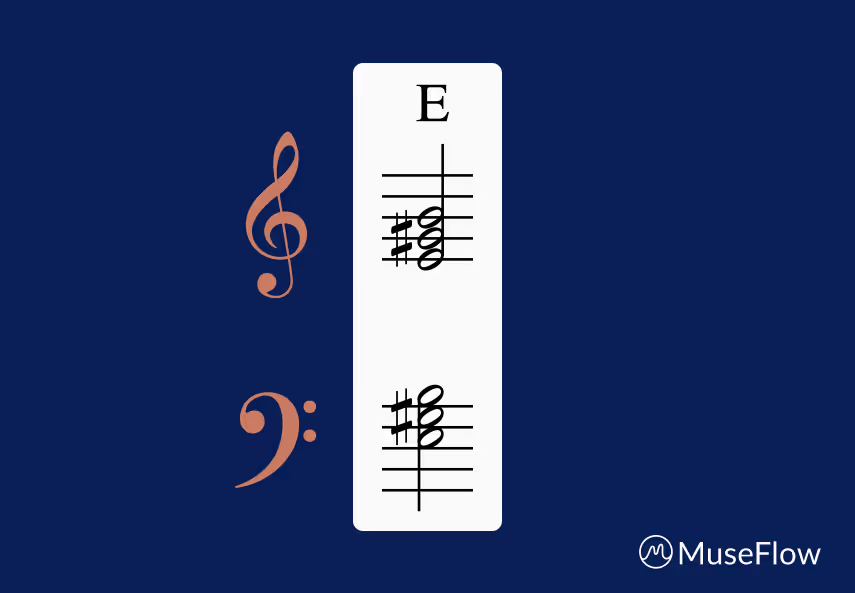
6. F Major (F-A-C)
F Major is slightly more challenging because it often requires a different hand position, but it's incredibly common. It has a smooth, mellow sound and is vital for playing in the key of C.
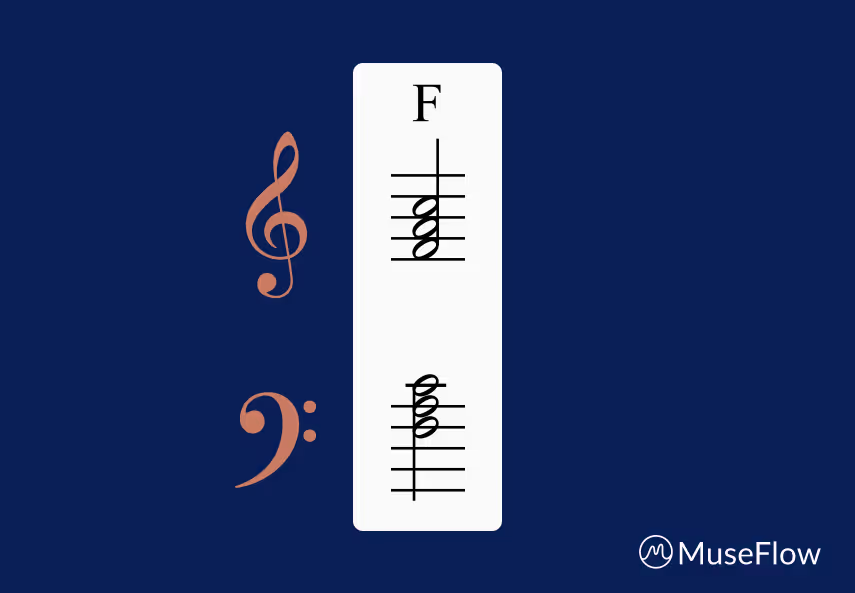
7. A Minor (A-C-E)
Now we enter the minor chords, which have a sadder, more introspective sound. A Minor is the relative minor of C Major, meaning they share the same notes but have a different tonal center. It's one of the most used minor chords.
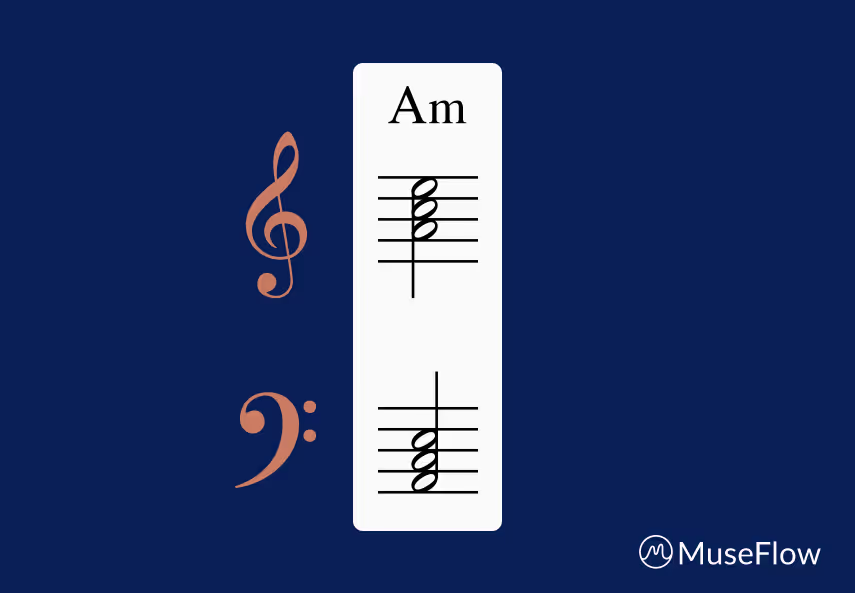
8. E Minor (E-G-B)
E Minor is hauntingly beautiful. It's all white keys, making it easy to play, and it's used extensively in ballads and emotional pieces.
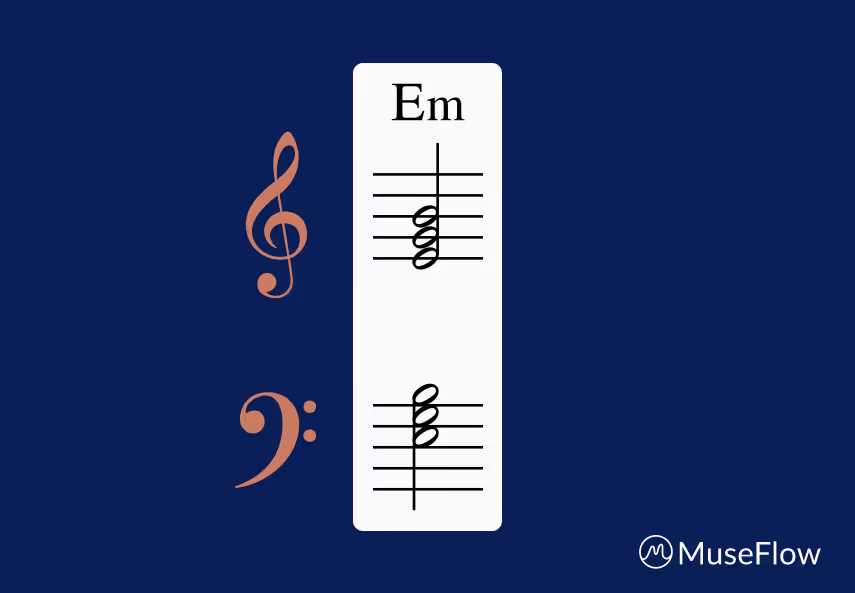
9. D Minor (D-F-A)
D Minor has a melancholic, dramatic quality. It's often used in classical music and adds depth to chord progressions.
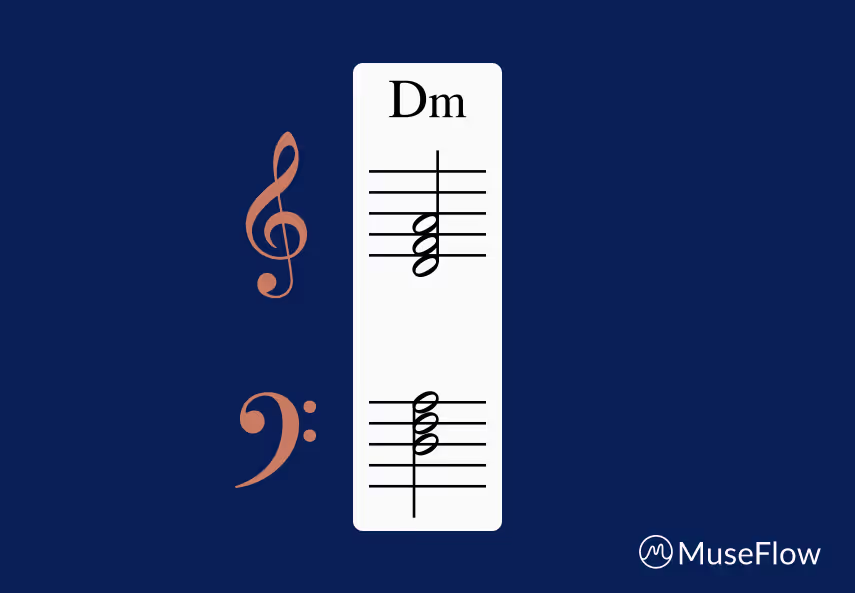
10. B Diminished (B-D-F)
This is a special chord. Diminished chords have a tense, unresolved sound that creates movement in music. B Diminished is the most common diminished chord for beginners and is essential for understanding how chords function.

11. G7 (G-B-D-F)
This is a dominant seventh chord, which means it has four notes instead of three. G7 has a strong pull towards C Major, making it perfect for creating tension and resolution. It's used in jazz, blues, and classical music.
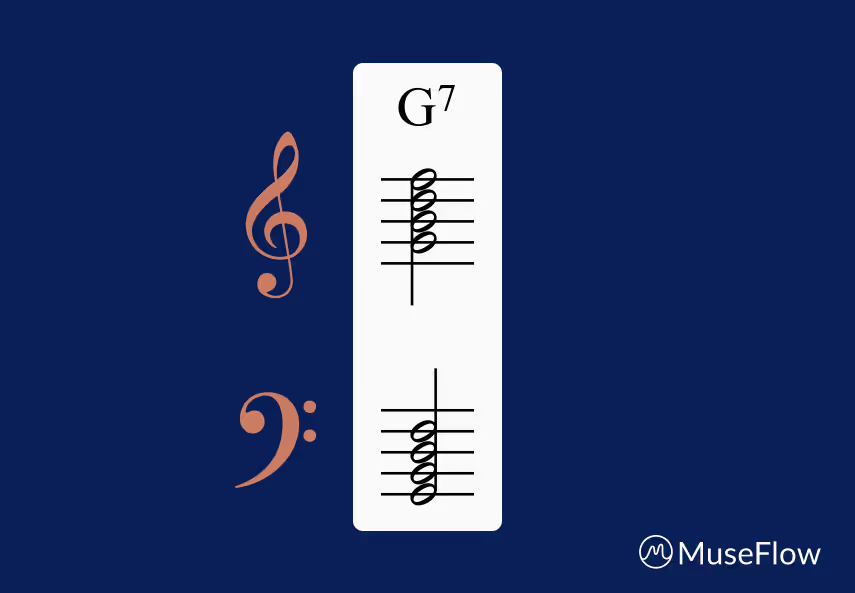
12. C7 (C-E-G-Bb)
C7 is another dominant seventh chord. It creates a bluesy, jazzy sound and is used to transition to F Major. Learning seventh chords opens up a whole new world of harmonic possibilities.
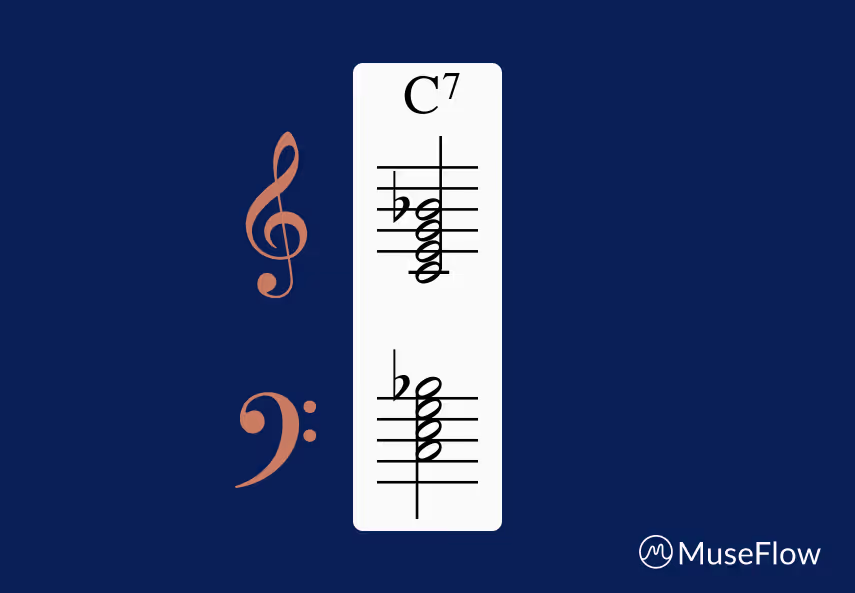
How to Practice These Chords with MuseFlow
Memorizing finger positions is one thing. Understanding how these chords function in music is another. This is where MuseFlow's approach shines. Instead of drilling isolated chords, you learn them in the context of real music through our sight reading exercises and repertoire library.
As you progress through MuseFlow's levels, you'll encounter these chords naturally. You'll see how they connect, how they resolve, and how they create the emotional landscape of a piece. This contextual learning is far more effective than rote memorization. Research on music learning shows that understanding the "why" behind the "what" leads to deeper, more lasting skills.

The Secret to Mastering Piano Chords
Here's the truth: knowing piano chords to play any song isn't just about memorizing shapes. It's about training your ear to hear them and your fingers to find them automatically. This comes from consistent, varied practice.
MuseFlow's never-repeating music generation ensures you're always encountering these chords in new contexts. You're not just playing C Major in one song; you're playing it in hundreds of different musical situations. This builds true fluency.
The benefits of learning piano extend far beyond the technical. It enhances cognitive function, emotional intelligence, and creative expression. And it all starts with mastering these foundational chords.

Ready to put these chords into action? Try MuseFlow for free and start learning piano chords for beginners the right way.. in context, with real music, and with instant feedback that makes every practice session count.
Piano Sight Reading for Beginners: Daily Exercises to Read Music Faster
For anyone starting their journey with piano sight reading for beginners, the goal is simple: to look at a piece of sheet music and play it correctly on the first try. It sounds like a superpower, but it's a skill like any other.. one that can be built with consistent, focused practice. With a revolutionary tool like MuseFlow, you can turn this daunting task into an engaging daily habit.
Forget dry, boring drills. This is your action plan for learning to read music faster, using daily exercises that feel more like a game than a chore.
The Foundation: What is Sight Reading, Really?
Before we dive into the exercises, let's clarify what we're aiming for. Sight reading isn't about memorizing songs. It's about understanding the language of music so you can interpret it in real-time. It involves three core skills:
- Note Recognition: Instantly knowing which note is on the staff.
- Rhythm Recognition: Understanding the duration of each note and rest.
- Pattern Recognition: Seeing groups of notes as chords or melodic phrases, not just individual dots.
The key to improving all three is consistent exposure to new material. This is where traditional methods fall short and modern tools excel.

Your Daily Sight Reading Action Plan (15-20 Minutes)
Consistency is more important than duration. A focused 15-minute session every day is far more effective than a two-hour cram session on the weekend. Here's how to structure your daily practice with MuseFlow for maximum results.
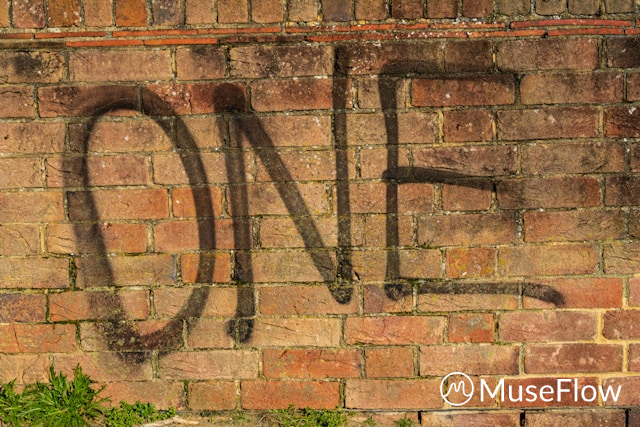
Part 1: The Warm-Up (3-5 Minutes)
- Goal: Activate your brain and fingers.
- Action: Open MuseFlow and head to the Sight Reading Trainer. Start with a level that feels easy.. almost too easy. The goal here isn't to struggle, but to build confidence and get into the flow. Focus on accuracy. Don't worry about speed. Play through a few exercises, aiming for 95%+ accuracy. This tells your brain, "Okay, it's time to read music."
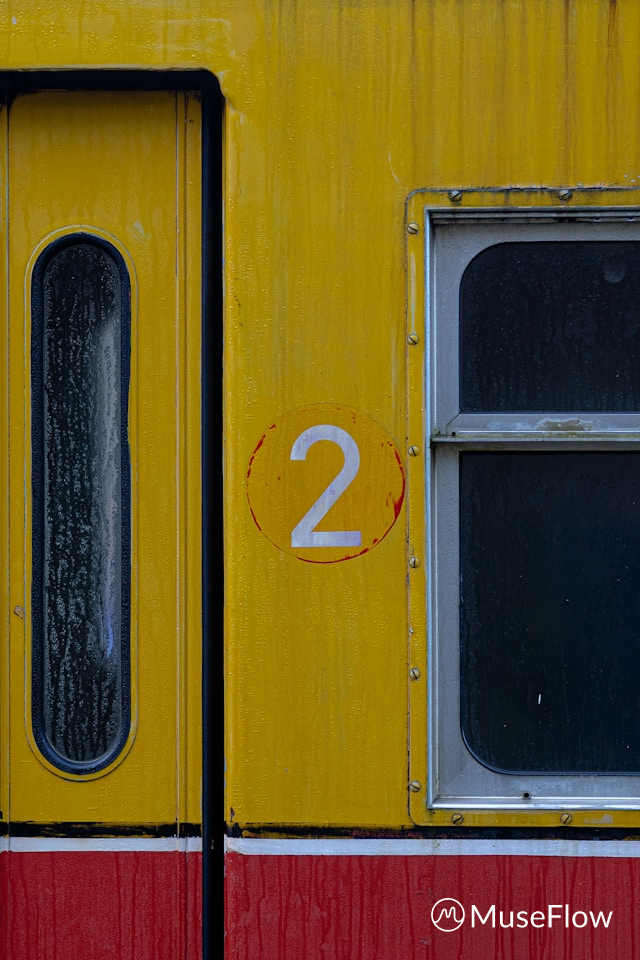
Part 2: The Core Workout (10 Minutes)
- Goal: Push your limits and build new skills.
- Action: Now, move to a level in the Sight Reading Trainer that is challenging but not impossible. This is your "learning zone." You should be making some mistakes, but not so many that you feel discouraged. Here's how to make the most of this time:
- Focus on One Thing at a Time: Don't try to fix everything at once. For the first few minutes, focus only on note accuracy. Ignore rhythm. For the next few minutes, focus only on rhythm. Even if you play a wrong note, play it with the correct timing. This isolates the skills and helps your brain process them more effectively.
- Use the Feedback: MuseFlow's real-time feedback is your secret weapon. A red note means you played the wrong pitch. A yellow note means your timing was off. Pay close attention to these cues. They are your personal teacher, correcting you on every single note.
- Embrace the "Never-Repeating" Engine: This is the most crucial element for piano sight reading for amateurs. Because MuseFlow generates new music every time, you are always sight reading. You can't cheat by memorizing the exercises. This constant novelty is what builds true, transferable skills. Research on sight reading development confirms that exposure to a high volume of novel material is the fastest way to improve.

Part 3: The Cool-Down (2-5 Minutes)
- Goal: End on a high note and consolidate your learning.
- Action: Go back to an easier level or jump into the Repertoire Library and play a song you enjoy. This is your reward. It reinforces the idea that the purpose of all this practice is to make music. Playing something fun after a challenging practice session helps solidify the new neural pathways you've built and makes you eager to come back the next day.

Why This Daily Plan Works
This structure is based on proven principles of skill acquisition:
- Progressive Overload: You start easy, push your limits, and then cool down. This is how you build any skill without burning out.
- Immediate Feedback: Correcting mistakes the moment they happen is exponentially more effective than waiting for a weekly lesson. Studies from USC show that consistent, responsive practice strengthens the neural networks required for musical proficiency.
- Varied Practice: By focusing on notes and rhythm separately, and by using never-repeating exercises, you're keeping your brain engaged and building more robust skills.
- Gamification: The entire MuseFlow experience is designed to be engaging. Accuracy scores, level progression, and achievements tap into your brain's reward system, making you want to practice.
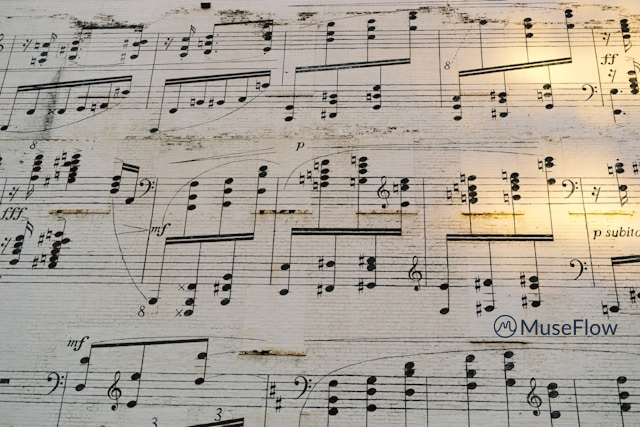
A Note for Ambitious Beginners
For beginners piano sight reading, the temptation is to jump ahead to complex music. Resist this urge. The foundation is everything. Spending a few weeks mastering the basics with this daily plan will make your progress much faster in the long run. The goal isn't to tackle a complex sonata by next month; it's to build a skill that will last a lifetime.
The journey of learning to sight read is one of the most rewarding in music. It unlocks a world of endless possibilities, allowing you to explore any piece of music you desire. With a structured daily plan and a powerful tool like MuseFlow's sight reading trainer, you're not just practicing.. you're building a superpower.
Ready to transform your sight reading skills? Try MuseFlow for free and start your daily action plan today!

How to Learn Piano Without a Teacher: Self-Taught Guide with Real-Time Feedback
So, you want to learn piano without a teacher? It's a goal that millions of people share, and with a tool like MuseFlow, it's more achievable than ever. But the internet is full of myths and half-truths about what it really takes to succeed. Can you really do it? Let's debunk some common myths and reveal the reality of self-taught piano in the modern age.
Myth vs. Reality: Learning Piano on Your Own
Myth #1: You need a teacher to correct your mistakes.
The Old Reality: This used to be true. Without a trained ear to catch wrong notes, rhythms, or techniques, self-taught students would often ingrain bad habits that were difficult to fix later. You could practice for a week, only to find out you were practicing the wrong thing all along.
The New Reality: Real-time feedback is your 24/7 teacher. This is the single biggest game-changer for anyone wondering how to learn piano without a teacher. A revolutionary app like MuseFlow connects to your MIDI keyboard and provides instant, note-by-note feedback.
- Play a wrong note? You'll see it in red, immediately.
- Is your timing off? The notes will show up yellow, guiding you to tighten your rhythm.
- Play it perfectly? You get that satisfying flash of green.
This seamless feedback loop means you're correcting mistakes the moment they happen, not a week later. It's a more efficient, more precise way to learn. Research from institutions like MIT has consistently shown that immediate and consistent feedback is crucial for developing musical skills.
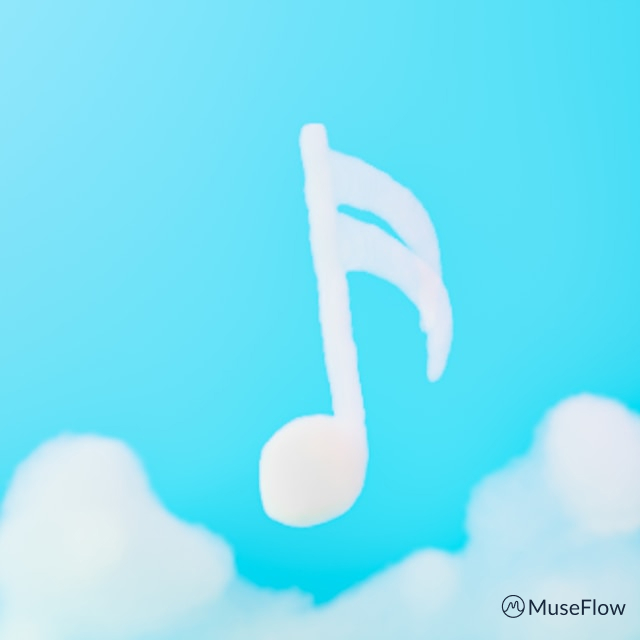
Myth #2: You won't learn proper technique without a teacher.
The Old Reality: A teacher is invaluable for showing you proper posture, hand position, and fingering. Without this guidance, self-learners were at risk of developing inefficient or even harmful habits.
The New Reality: Guided curriculum and visual aids build a strong foundation. While an app can't physically adjust your posture, MuseFlow's curriculum is designed to build technique systematically. The on-screen hand guides and clear visual instructions for fingering provide a strong starting point. More importantly, by focusing on sight reading from day one, you're training your hands and mind to work together efficiently. You're not just memorizing finger movements for one song; you're learning the universal language of music.
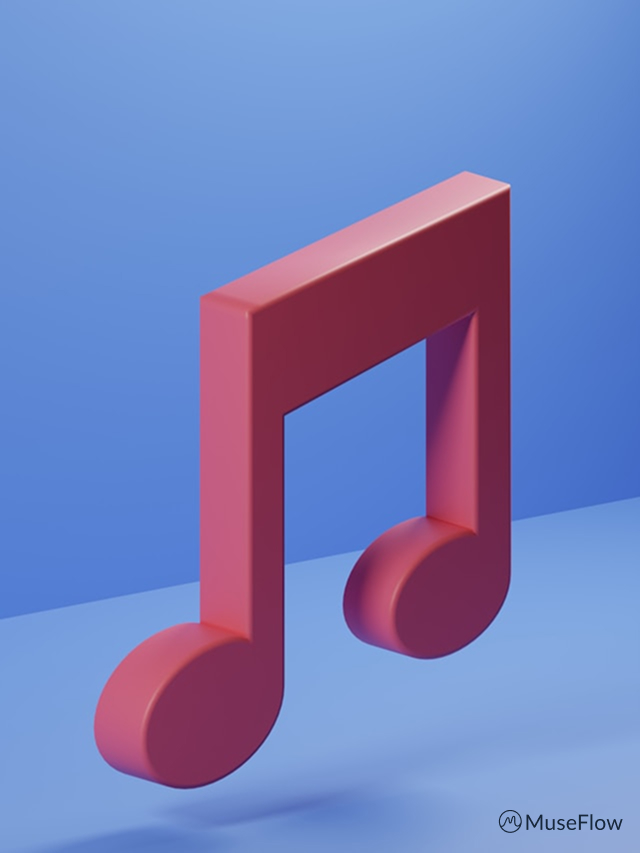
Myth #3: You'll get bored and lose motivation.
The Old Reality: This is a huge one. The lonely grind of practicing scales and drills from a dusty book is a notorious motivation killer. Without the accountability of a weekly lesson, it's easy to let practice slide.
The New Reality: Gamification makes practice feel like play. This is where modern tools truly shine. MuseFlow turns the entire learning process into an immersive game.
- You're not just practicing; you're completing levels and unlocking achievements.
- You're not just drilling; you're competing against your own accuracy score.
- You're not stuck on one boring piece; you have a vast song library to explore.
This ingenious approach keeps you engaged and creates a powerful sense of progress. When you can clearly see your skills improving every single day, motivation takes care of itself. This aligns with principles of Flow State, where challenge and skill are perfectly balanced to create a deeply satisfying experience.

Myth #4: You won't know what to practice next.
The Old Reality: A self-learner's journey was often a random walk through YouTube tutorials and method books. This lack of structure is confusing and inefficient. Do you learn chords first? Scales? Theory?
The New Reality: A clear, progressive path guides your journey. MuseFlow offers the best of both worlds: a structured 27-level curriculum that guides you from absolute beginner to advanced player, combined with the freedom to explore on your own. It's like having a campaign mode and an open-world in one. You can follow the proven path to build skills logically, or you can jump into the song library and tackle pieces that inspire you. This removes the guesswork and ensures you're always working on something that's both productive and enjoyable.
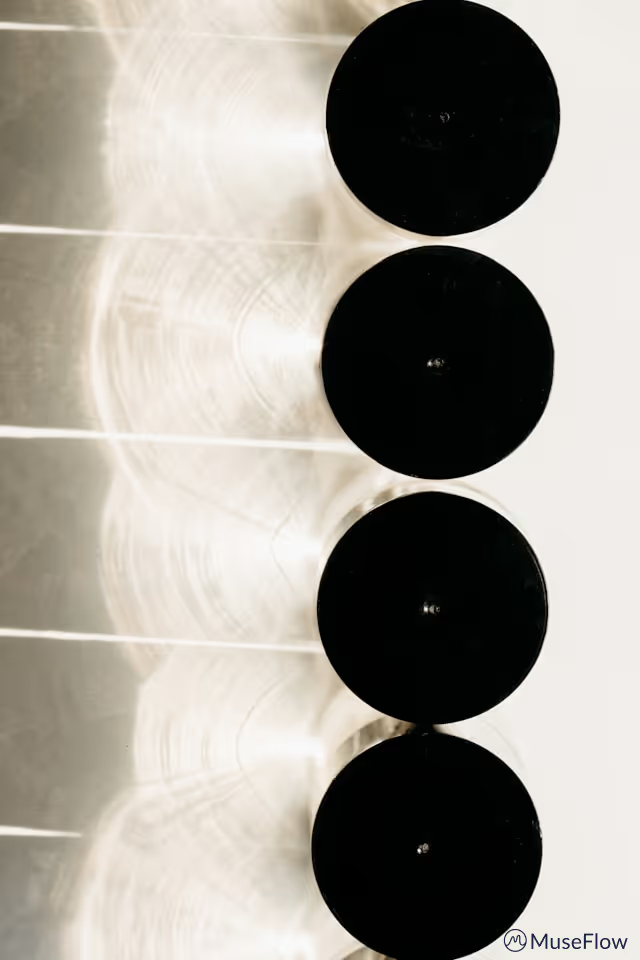
So, Can I Learn Piano Without a Teacher?
Yes. A thousand times, yes. The question is no longer if you can learn piano without a teacher, but how you do it. The key is to leverage technology that provides the essential elements a teacher once offered:
- Instant, Accurate Feedback: To correct mistakes in real-time.
- Structured Curriculum: To build skills in a logical order.
- Engaging Content: To keep you motivated and practicing consistently.
With a tool like MuseFlow, you're not just learning alone in the dark. You're learning with a powerful, responsive guide that's available anytime you are. It's a transformative approach that empowers you to take control of your musical journey. The benefits of learning an instrument are immense, and now, they are more accessible than ever.

Ready to start your self-taught journey the smart way? Try MuseFlow for free and discover how our real-time feedback can make you the musician you've always wanted to be.

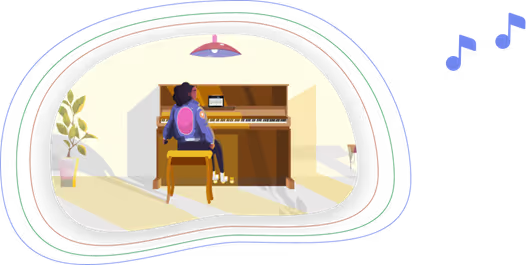
Try MuseFlow for Free!
Keep up to date on our progress as we continue to add new features!
